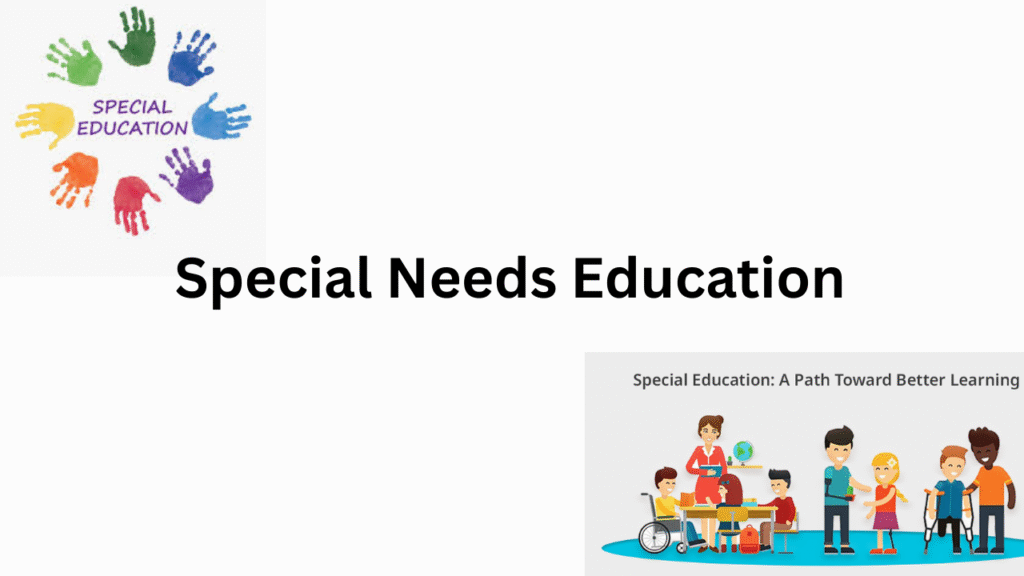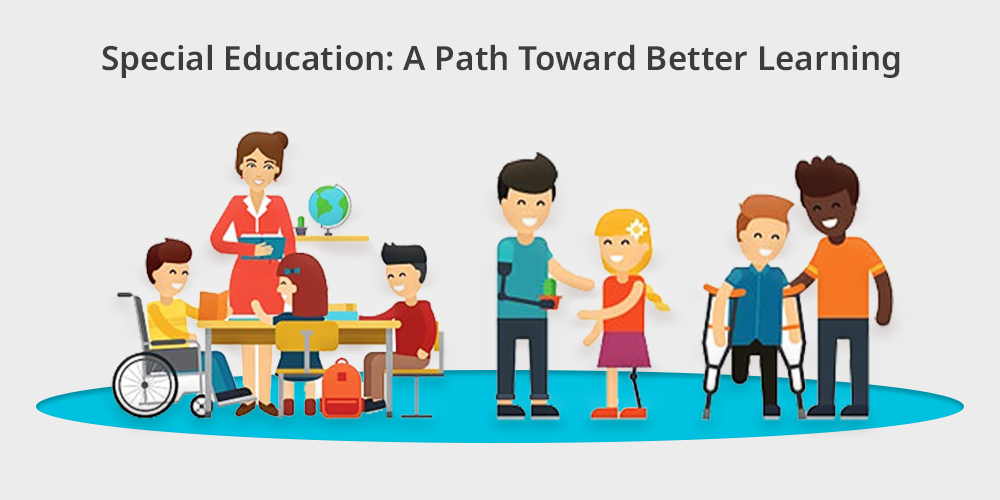
Introduction to Special Needs Education
Special Needs Education refers to teaching methods and strategies designed for students with learning, physical, emotional, or developmental challenges. It ensures every child has equal access to quality education regardless of their abilities. The aim of Special Needs Education is to support personal growth, independence, and lifelong learning. By focusing on inclusivity, it promotes fairness and equality within the education system.
Importance of Special Needs Education in Modern Society

In modern society, Special Needs Education plays a crucial role in reducing educational inequalities. It helps children with disabilities build confidence, skills, and independence. Inclusive education ensures that every child becomes a contributing member of society. Special Needs Education also promotes empathy and understanding among students, creating a more compassionate community. It is vital for building a strong and inclusive social structure.
Types of Special Needs in Education
Special Needs Education covers a wide range of challenges faced by students. These include learning disabilities like dyslexia, physical impairments such as hearing or visual loss, developmental conditions like autism, and emotional or behavioral difficulties. Each type of special need requires unique teaching strategies. Special Needs Education focuses on adapting the curriculum to suit these diverse requirements. This ensures equal learning opportunities for all.
Role of Teachers in Special Needs Education
Teachers are the backbone of Special Needs Education. They adapt teaching methods, create supportive environments, and provide individual attention to students. Special education teachers use tailored lesson plans and tools to meet diverse learning needs. Their patience, understanding, and training play a vital role in student development. By fostering confidence and independence, teachers become strong advocates of inclusive education.
Benefits of Inclusive Classrooms for Special Needs Students

Inclusive classrooms are a key part of Special Needs Education. They allow students with and without disabilities to learn together in the same environment. This promotes social interaction, teamwork, and empathy among peers. For special needs students, inclusive classrooms provide a sense of belonging and equality. Research shows that inclusive education improves both academic and social outcomes for all students.
Challenges Faced in Special Needs Education
Despite its importance, Special Needs Education faces several challenges. Many schools lack resources, trained teachers, and specialized learning materials. Stigma and misconceptions about disabilities also limit progress. Financial constraints and outdated policies make it harder for students to receive proper support. Addressing these challenges is essential to create an effective and accessible Special Needs Education system for all.
Role of Parents in Supporting Special Needs Learning
Parents play an essential role in Special Needs Education. Their involvement in the learning process improves student confidence and performance. Parents provide emotional support, reinforce lessons at home, and work closely with teachers. They are also strong advocates for their children’s rights in education. A collaborative approach between schools and families ensures better outcomes in Special Needs Education.
Use of Technology in Special Needs Education
Technology is transforming Special Needs Education by providing innovative learning solutions. Tools like text-to-speech software, interactive apps, and digital classrooms help students overcome learning barriers. Assistive technologies such as braille devices or hearing aids enhance communication. Online resources also provide flexibility and personalization in learning. By integrating technology, Special Needs Education becomes more accessible and effective for diverse learners.
Government Policies and Global Support for Special Needs Education
Governments and global organizations are increasingly supporting Special Needs Education. Policies ensure equal rights, accessibility, and funding for inclusive schools. Programs by UNESCO and UNICEF encourage countries to adopt inclusive education models. Many nations have passed laws to protect the educational rights of children with disabilities. These efforts strengthen Special Needs Education and promote equality at a global level.

Conclusion: Building an Inclusive Future through Special Needs Education
Special Needs Education is essential for creating an inclusive and fair society. By addressing diverse learning needs, it empowers students with disabilities to achieve their full potential. Collaboration between teachers, parents, and governments is crucial for success. With proper resources and support, Special Needs Education can transform lives. Building inclusive education today ensures a brighter, equal, and sustainable future for all.
FAQs
Q1: What is Special Needs Education?
Special Needs Education is a teaching approach designed to support students with learning, physical, developmental, or emotional challenges.
Q2: Why is Special Needs Education important?
It ensures equal learning opportunities, builds student confidence, and helps create an inclusive society where every child can thrive.
Q3: What are the main types of special needs in education?
They include learning disabilities, physical impairments, developmental conditions like autism, and emotional or behavioral challenges.
Q4: How do teachers support Special Needs Education?
Teachers adapt lessons, use personalized teaching strategies, and create supportive environments that meet the needs of diverse learners.
Q5: What are the benefits of inclusive classrooms for special needs students?
Inclusive classrooms promote social interaction, teamwork, and equality, helping special needs students feel accepted and supported.
Q6: What challenges exist in Special Needs Education?
Common challenges include lack of resources, trained teachers, assistive tools, and social stigma toward disabilities.
Q7: How can parents support Special Needs Education?
Parents can provide emotional support, practice lessons at home, and work with teachers to improve learning outcomes.
Q8: What role does technology play in Special Needs Education?
Technology provides assistive tools like text-to-speech, braille devices, and interactive apps that make learning more accessible.
Q9: How do governments support Special Needs Education?
Governments create policies, laws, and funding programs to ensure equal educational rights for students with disabilities.
Q10: What is the future of Special Needs Education?
With growing awareness, technology, and inclusive policies, the future of Special Needs Education is more supportive and accessible for all learners.






Leave a Reply